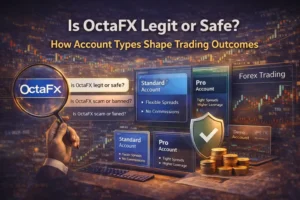When I first started exploring the world of online gambling a few years ago, one of my earliest questions was: “Is it safe to use my credit card at an online casino?” Over time, I’ve dug into the security protocols, regulatory frameworks, and real-world experiences, and today I want to give you a clear, balanced answer. In this article, we’ll explore whether credit card casinos are safe to use online, what risks you should watch for, and practical strategies to minimize exposure.
Understanding “Credit Card Casinos”
Before diving into safety, let’s define our terms. By “credit card casinos,” I mean online gambling sites that allow you to deposit funds or wager using a credit card (Visa, Mastercard, or sometimes others). This is distinct from casinos that accept only e-wallets, bank transfers, cryptocurrencies, or prepaid cards. Because credit cards are so ubiquitous, many gamblers prefer them for convenience, flexibility, and ability to dispute charges if something goes wrong.
However, the convenience of credit card casinos comes with trade-offs. While many sites accept cards, that doesn’t automatically guarantee security or fairness. To determine whether using a credit card at an online casino is “safe enough,” we need to look at three core dimensions: regulatory and licensing practices, payment security infrastructure, and personal risk (financial and legal).
Are Credit Card Casinos Technically Secure?
When done right, the core technology and infrastructure for handling credit card payments at casinos can be quite secure. Below are key components that reputable sites and payment processors should employ.
PCI DSS Compliance
Any site or payment gateway that processes, transmits, or stores cardholder data must adhere to the Payment Card Industry Data Security Standard (PCI DSS). In the online gambling world, this is non-negotiable: the casino or its payment processor must undergo audits, maintain secure infrastructure, and follow best practices in encryption, access controls, and data handling. HALOCK If an online casino claims to be PCI compliant, that is a positive sign (though not proof, by itself, that the rest of the site is well managed).
Encryption and Secure Tunnels
At a minimum, credit card casinos should use HTTPS (TLS/SSL) for all pages where card data is entered, and the payment form should be handled via secure, tokenized APIs rather than storing raw card details on their servers. In a well-designed system, the merchant never even “sees” the raw card number; it’s processed via a trusted gateway.
Regulatory Oversight and Licensing
A credit card casino that operates under a recognized gambling license (Malta, Gibraltar, UKGC, Isle of Man, etc.) typically has to follow rules about player protection, dispute resolution, financial reserves, and audits. That gives you additional recourse if things go wrong. In contrast, unlicensed casinos may accept credit cards, but often lack meaningful oversight. (Indeed, in recent news, Mastercard and Visa were linked to facilitating payments for unlicensed gambling sites accused of scamming customers. The Guardian)
Internal Controls & Anti-Fraud Measures
Good operators monitor unusual betting patterns, perform identity verification (KYC), use fraud detection systems, and limit chargebacks or misuse. Because online gambling is a high-risk business, many casinos invest heavily in internal controls. The flip side is that less scrupulous operators may cut corners—if they do, your risk of fraud or mistreatment goes up.
In short, when a credit card casino is legitimate, licensed, and technically robust, the flow of card payments can be quite safe—on par with many e-commerce sites. But “safe” here is always conditional on the next part: your personal exposure.
Personal & Financial Risks in Using Credit Card Casinos
Even if the infrastructure is solid, using a credit card at a casino comes with risks you must manage, because you’re dealing with real money, leverage, and in many jurisdictions, complex legal status.
Credit Cards Treated as Cash Advances
One of the biggest surprises for many gamblers is that some card issuers will treat online gambling transactions as cash advances, not standard purchases. That means you pay a flat fee (often 3–5 %) plus immediate interest (no grace period). Bankrate+1 Over time, those costs can erode any gains. I once charged a modest $200 deposit to a gambling site, only to find it billed as a cash advance with high interest—turning what I thought was a “cheap test bet” into a steep cost.
Credit Limits, Declines & Restrictions
Many card issuers either outright block gambling transactions or frequently decline them, depending on their internal policies or ambiguity in local laws. Bankrate+2Aeropay+2 In certain countries (or states, in the U.S.), regulations or banking policies forbid or heavily regulate credit card gambling. Sometimes the card issuer declines or flags the transaction, or the casino’s acquiring bank refuses to process it.
Overspending & Debt Risk
Because credit cards allow you to spend today and pay later, they inherently encourage overextension. That risk is magnified in gambling: it’s emotionally charged money, and losses often lead people to chase them with further card use. In fact, credit-funded gambling is statistically more likely to lead to compulsive behavior. Forbes+1 Your credit score, utilization ratio, and financial stability could all be damaged if you’re not disciplined.
Dispute & Chargeback Uncertainty
One reason some gamblers prefer cards is the request for chargebacks when a site behaves unfairly (e.g., refusing payouts). But online gambling is a “gray” category—many card issuers won’t support gambling-related chargebacks, depending on the terms. Further, casinos sometimes include contractual clauses forbidding chargebacks or require arbitration. So the safety net you imagine may not always apply.
Regulatory and Legal Risk (Jurisdictional Uncertainty)
In some jurisdictions, online gambling is illegal or restricted, meaning credit transactions for that purpose may be disallowed. In the U.S., for example, the Unlawful Internet Gambling Enforcement Act (UIGEA) restricts gambling businesses from knowingly accepting certain transactions involving “bets or wagers” over the internet. Wikipedia That doesn’t always criminalize the gambler, but it injects ambiguity into whether credit card payments will be honored or reversed.
Fraud, Data Breach & Identity Risk
Even the most secure sites can fall victim to data breaches or compromises. Because gambling involves real money and attracts malicious actors, credit card casinos may become targets. If your card data is exposed, it could be used elsewhere. Also, some shady casinos may attempt deceptive practices or hacking. The risk is lower at major licensed casinos, but never zero.
Examples & Real-World Stories
From my own research and community reports, here are two illustrative cases:
A gambler deposited via credit card on a casino that later went offline without warning. The card was charged, but the casino vanished and the gambler couldn’t withdraw winnings or open disputes. Because the site was unlicensed, credit card chargebacks were denied.
In the UK, an investigation found that Mastercard and Visa had processed payments for illegal/unlicensed gambling sites, many of which later refused payouts or canceled accounts. Victims claimed they had no recourse. The Guardian
These stories underscore how the safety of credit card casinos depends less on the card itself and more on whether the casino is trustworthy, licensed, and well regulated.
What to Look for: Criteria for a Safer Credit Card Casino
If you decide to use a credit card at an online casino, here’s a guide based on my experience for assessing risks and making safer choices:
1. Valid, Recognized License & Public Regulation
Only play at casinos licensed by credible regulators (e.g., UKGC, Malta, Isle of Man, Curacao with good reputation). Check the regulator’s website to confirm the license. Regulatory oversight gives you leverage if disputes arise.
2. Transparent Terms & Fair Payout Policy
Read the terms regarding deposits, withdrawals, chargebacks, disputes, and whether they treat card deposits as cash advances. A trustworthy casino displays these terms clearly and doesn’t bury them in fine print.
3. Payment Processor Reliability
If the casino uses known, reputable payment gateways (e.g., major PSPs) and discloses PCI compliance or third-party auditors, that’s a positive signal. If payment is handled via obscure or proprietary processors with no public reputation, that raises red flags.
4. Strong Security & Privacy Practices
Look for HTTPS, audited RNGs, regular security audits, clear privacy policies, data encryption, and two-factor authentication for your account.
5. Conservative Limits & Responsible Gambling Tools
Better casinos enforce deposit limits, cooling-off periods, self-exclusion, and provide tools to manage your gambling activity. These protections reduce the risk of runaway losses tied to credit card use.
6. Reputation & Community Feedback
Check independent reviews, forums, Reddit, or gambling communities. See whether others have had payout problems or disputes with that site. Beware if many complaints exist.
7. Test with Small Amounts First
If you’re uncertain, test a small deposit and withdrawal using your credit card first. If the process is smooth and transparent, you can proceed cautiously. If you hit obstacles, stop.
Safer Alternatives to Credit Card Casinos
Given the financial and structural risks tied to credit card casinos, many experienced gamblers prefer alternative payment methods, which in many cases turn out to be safer and more reliable:
E-wallets (PayPal, Skrill, Neteller, etc.): These act as a buffer between your bank and the casino, reducing exposure of your card details. onrec.com
Prepaid or Voucher Cards: Top up a preloaded card (e.g. Neosurf), then gamble without linking your credit line.
Bank Transfers / Wire / A2A payments: Direct transfers from your bank reduce reliance on credit cards. Some jurisdictions prefer these for compliance. Aeropay
Cryptocurrencies: For those comfortable with volatility and regulation, crypto can provide anonymity and fast deposits/withdrawals (but brings its own risks).
Debit Cards or ACH: These avoid credit exposure and tend to avoid the “cash advance” classification.
Using these methods often means less friction with your bank or card issuer and fewer surprises in cost or rejection.
Final Take: Are Credit Card Casinos Safe Enough?
In truth, the answer is: Yes — but only if you take the right precautions. There’s no blanket “safe” or “unsafe” label for all credit card casinos. The safety depends largely on how well the casino is managed, licensed, and audited, and how cautious you are as a user.
If you use a licensed, regulated casino with strong security, and treat credit card deposits carefully, the risk of loss or fraud is relatively low (comparable to many e-commerce uses).
But if you use an unlicensed site, allow deposits without limits, or don’t check the payout track record, then danger is real: unprocessed withdrawals, chargeback denials, data breaches, or abusive behavior.
In your early days, I strongly recommend limiting your use of credit cards for gambling, using alternative payment methods, and always starting small. If a credit card deposit makes sense for convenience and you understand the associated costs (cash advance fees, possible declines, etc.), go ahead—but only after performing your due diligence.
If you’d like a list of trustworthy credit card casinos in your country, or specific safety recommendations for Pakistan or your local jurisdiction, I’d be happy to provide one. Let me know!






